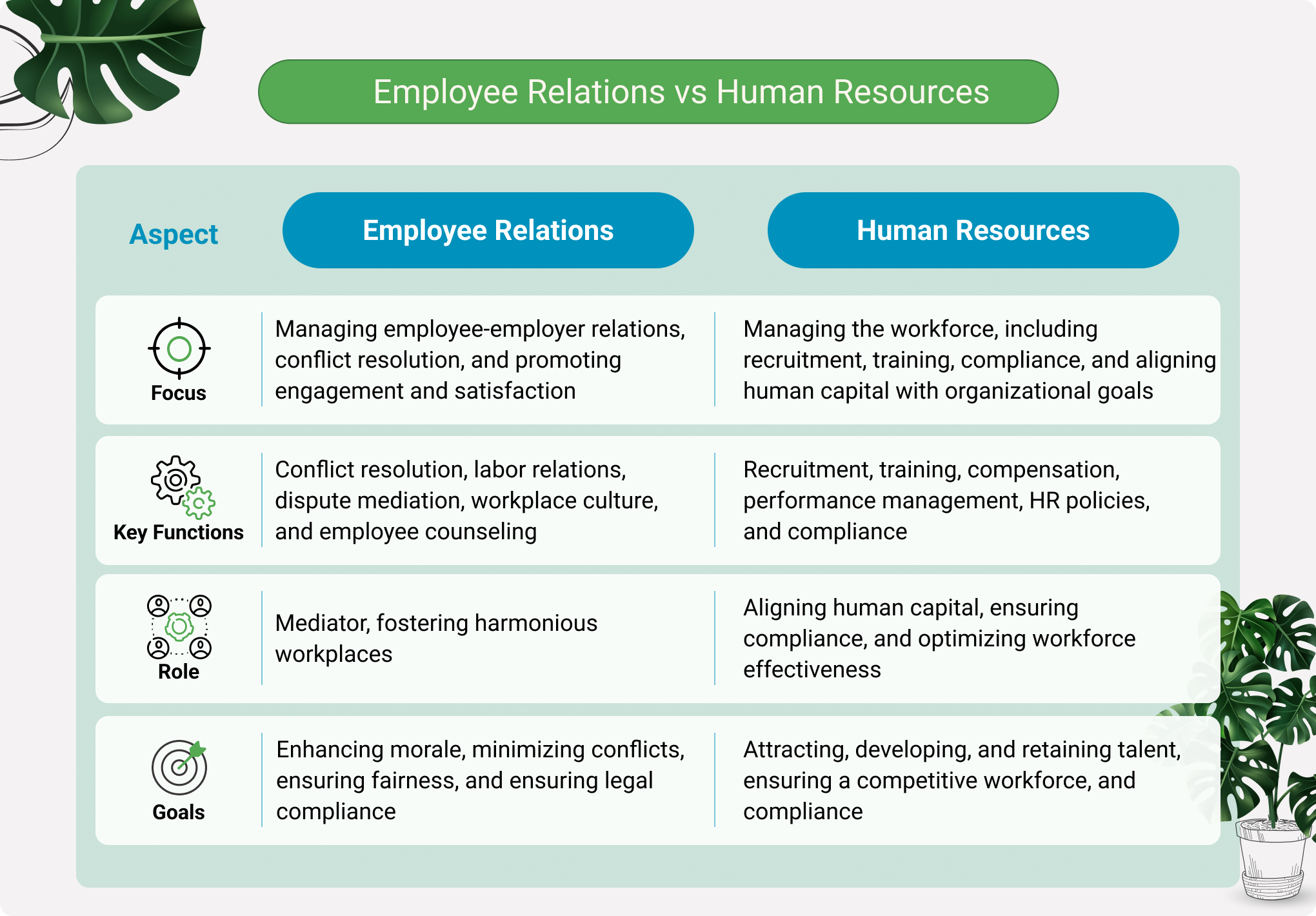Employee Relations
Employee relations (ER) entails managing the interactions between employers and employees, encompassing individual and collective workplace relationships, with an increasingly emphasized focus on the connection between managers and their team members.
Role of Employee Relations in HRM
The role of employee relations in HR Management is pivotal in creating and maintaining a harmonious and productive work environment.
Here are the critical aspects of the role of employee relations within HR Management:
Conflict Resolution: Mediating and resolving disputes
Communication: Facilitating effective interaction
Engagement: Enhancing job satisfaction
Policy Management: Developing and enforcing HR policies
Labor Relations: Addressing union-related matters
Performance: Improving employee performance
Assistance: Supporting employees through challenges
Legal Compliance: Ensuring adherence to labor laws
Documentation: Maintaining records for transparency
Training and Development: Providing HR-related education
Employee relations vs Human Resources

Why Employee Relations Management
Positive relationships among employees and with leadership are essential for teamwork, collaboration, and innovation. To nurture these relationships, companies must view employees as valuable contributors, seeking their input and considering their experiences in decision-making.
Strategies for Employee Relations Issues
Craft an Employee Relations Strategy: Develop a strategy aligning employer and employee needs, focusing on productivity and recognition, and include KPIs like recognition metrics, complaint handling, and employee satisfaction
Prioritize Active Listening: Listen to understand and address employee concerns
Emphasize Education and Communication: Maintain positive relations through clear communication and consistent education on company rules, avoiding favoritism
Ensure Compliance: Document all information for addressing and referencing employee relations matters, especially in potential legal disputes